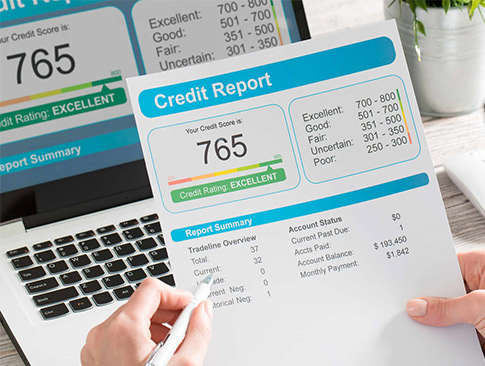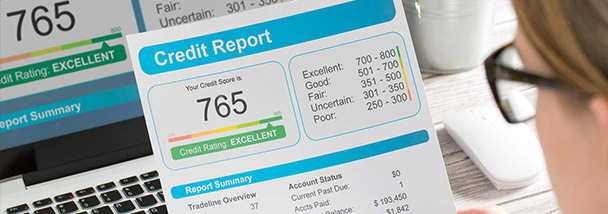
A great credit score is important to your financial health. If your credit is less than ideal, all is not lost. Here are a few suggestions to help begin building your credit back up. Yes, it may require some time and lots of patience, but you won’t regret the effort.
1) Get your credit report and dig in
Knowledge really is power. Get your free credit report and score at any time with My Credit Rx. Pulling your own credit information — like a report card for how you handle money — won’t impact your score. It’s also a good idea to request one report from a different bureau (Experian, Equifax and TransUnion) every four months so you can make sure there are no errors showing up on individual reports. Get these for free at www.AnnualCreditReport.com.
If you see anything that’s not correct, report it. About 20% of all credit reports have mistakes and this could result in a lower score even if you did nothing wrong.
2) Automate to avoid late fees (and a lower credit score)
Your credit score is largely based on your payment history, counting for about 40%. Scores range from 300 to 850, the higher the better. Here’s the thing: Even one late credit card payment can lower your score by as much as 100 points. That’s huge and is why it’s so important to pay your bills on time, or even early, every single due date.
One way to do this is to use online banking and set up automatic payments. Also, use your electronic calendar to send you reminders on your phone or computer to nudge you to pay your bills a day or so early. If you are old school, put a big red dot on the paper calendar in your kitchen or office, tape a note to your bathroom mirror or find some other clever way to remember.
3) Pay down debt then stay low
Lenders don’t want to see sky-high balances on your credit cards. That means making an effort to pay down balances if you’re carrying them — and then refrain from maxing out your cards if you can help it. Owing more than 30% of your credit limit can be a red flag to lenders. Aim to use between 10% and 30% of the total credit you have.
4) Use it or lose it
If you don’t use a credit card in six months or longer, your card issuer could cancel the account and that, in turn, could ding your credit score. If it was the card you held for the longest period of time, that’s a double whammy, because the longer your relationship with your lender, the better it is for your score. To keep an unused card current, make a small purchase once a month then immediately pay the bill.
5) Consider a secured credit card
If you get turned down for a traditional credit card because of a low credit score or no credit history, you can try opening a secured credit card. This type of card allows you to pledge a certain amount of money up front, which becomes your credit limit. Over time, perhaps 18-24 months of good behavior, you may find yourself in a position to be approved for a traditional credit card.
You should also make sure to check in on your credit score and reports frequently to quickly address any potential errors that could be dragging down your scores. NIHFCU members can now do this with free access to their score and more through My Credit Rx, inside online banking or our mobile app.



